UPDATE: The 2019 report is out, and Costa Rica remains a full democracy! It moved up in the rankings from #20 to #19 (out of 167 countries), and the total score is up to 8.13, from 8.07. Another great honor, on top of recently being named a Champion of the Earth!
======
We enjoy reading about the characteristics of Costa Rica that make it an attractive location for us to spend time in retirement, including how it has had no military for the last 70 years, and how it is consistently named as a top retirement destination. We also haven’t written much about how eco-friendly and protective the country is, and how for several years in a row, Costa Rica has operated the electrical grid almost solely on renewable energy.
Costa Rica has received another distinction that continues to make us comfortable with investing our time and money there, and to spend time in our upcoming digital nomad phase once our younger child goes to college in less than a year. Costa Rica has been named by The Economist as a “full democracy”, moving up in the rankings from “flawed democracy.”
The Economist has been publishing for 11 years their index of countries and where they stand on the spectrum of governing with a democracy, identifying countries as Full Democracy, Flawed Democracy, Hybrid Regime or Authoritarian Regime.
In summary, The Economist is looking for the following in a full democracy:
- respect of basic political freedoms and civil liberties
- political culture conducive to a flourishing democracy
- independent and diverse media
- effective checks and balances
- independent judiciary where decisions are enforced
Each country is rated on 60 indicators and then scored across 5 categories on a scale of 1 – 10, and given a final score between 1 and 10. Scoring 8-10 is considered full democracy, 6-8 as flawed democracy, 4-6 as Hybrid Regime and <4 as Authoritarian Regime.
167 countries were evaluated, and Costa Rica landed at #20, with a score of 8.07. Costa Rica joins Uruguay as the only Latin American countries to score full democracy.
The event that propelled Costa Rica into the Full Democracy spot was its highly contested 2018 election, which saw a very progressive candidate handily defeat a very conservative candidate. According to The Guardian, fear of “outsider candidates and their policies” causes more people to be engaged in the election and get out and vote, which is what happened in Costa Rica, boosting the “political participation” score.
The new Costa Rica president, Carlos Alvarado Quesada, ran on a campaign of promoting gay rights, and at 38 is one of the youngest elected to lead a country. He won the race by a wide margin, 60% – 40%. On his ticket as one of two vice presidents was Epsy Campbell Barr, the first woman of African descent to hold the vice president position in the Americas.
I realize that a score of 8.07 this year (as compared to 7.88 last year) puts it right on the cusp between full and flawed democracy, and the dividing lines are sort of arbitrary, but there is no denying that Costa Rica ranks 20 out of 167 countries on a competent scale assessed by a competent international body, and has shown improvement.
Interesting about the rankings is that Costa Rica finished just ahead of the United States, which at #25 is considered a flawed democracy at 7.96 points. The US was dinged in the “functioning of government” category, as public confidence in the institution has weakened and political polarization has become more pronounced.
The Democracy Index is a free PDF download, which you can get on The Economist website.
======
With our digital nomad phase looming (our younger goes off to college in August), relocating at least part of the year to Costa Rica is definitely in our plans, and signs like this make us more and more comfortable with it.

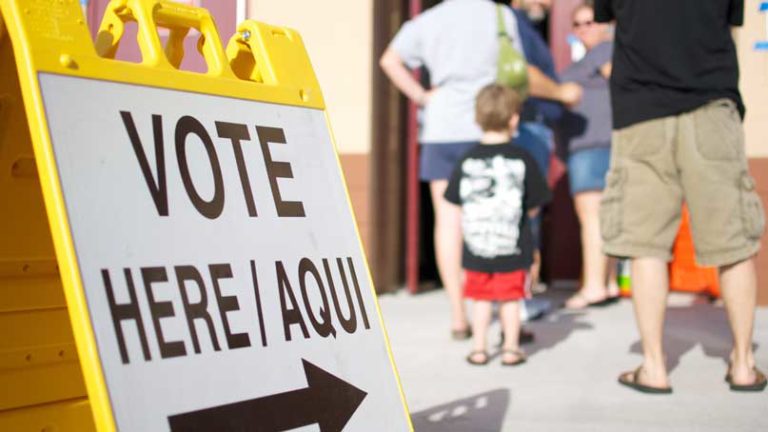
 We are Scott and Caroline, 50-somethings who spent the first 20+ years of our adult lives in New York City, working traditional careers and raising 2 kids. We left full-time work in our mid-40’s for location-independent, part-time consulting projects and real estate investing, in order to create a more flexible and travel-centric lifestyle.
We are Scott and Caroline, 50-somethings who spent the first 20+ years of our adult lives in New York City, working traditional careers and raising 2 kids. We left full-time work in our mid-40’s for location-independent, part-time consulting projects and real estate investing, in order to create a more flexible and travel-centric lifestyle.  Financial independence and early retirement is not something we originally focused on, but over time realized it was possible. Our free report,
Financial independence and early retirement is not something we originally focused on, but over time realized it was possible. Our free report, 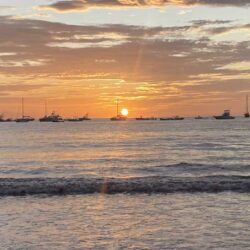
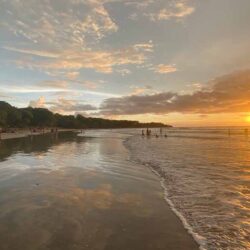
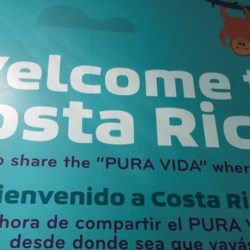
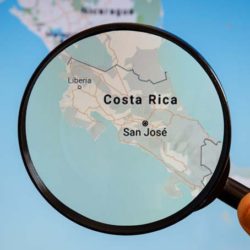





That’s a great score, way better than Thailand.
I used to think politic doesn’t matter that much for expat retirees, but it does. I’d rather support a democratic country than an authoritarian regime. It’s also a safety issue, right?
Of course it is complicated. Safety actually doesn’t seem to factor directly into the Democracy Index, and Costa Rica has had a fair share of stories about tourists killed or kidnapped in the past year, so it is definitely not the safest country out there. But, at the same time, those stories are out there and covered by an independent press/media, and the government seems to use those incidents as a way to improve, so it is in the dialog rather than covered up. My old job took me to both Thailand and Kenya on business from time to time, and it was truly laughable some of the things you’d read in the press or hear in statements from the police, that was clearly either covering up some kind of bad story, or spinning it in a way that made no sense.